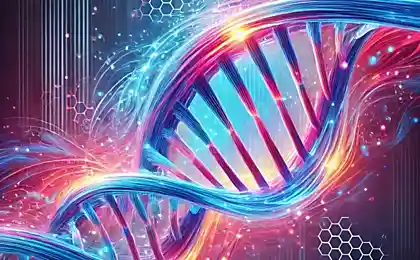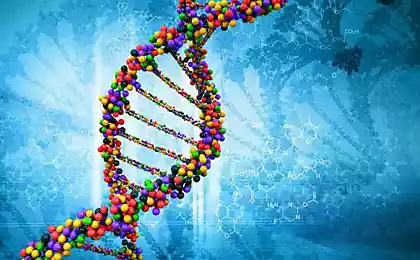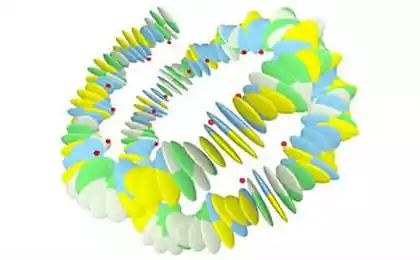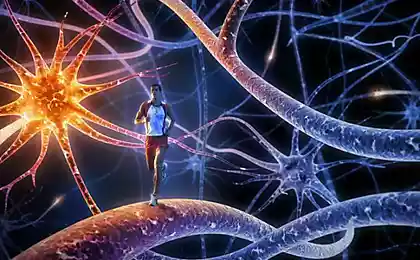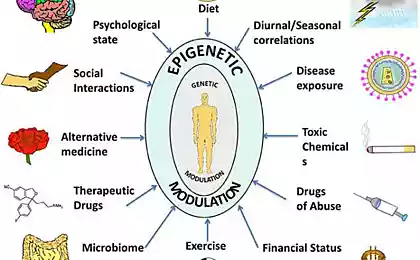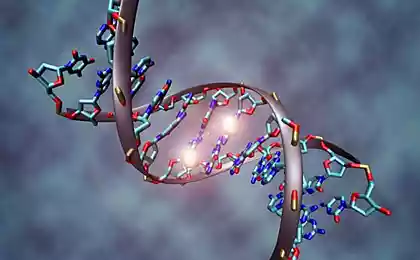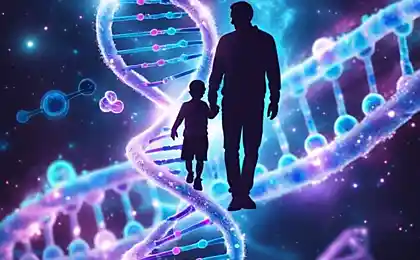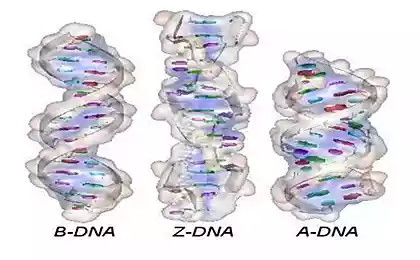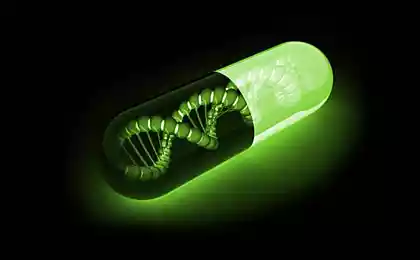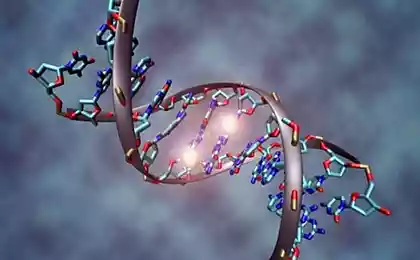579
Genes affect happiness, and traits
Genes - a section of the DNA molecule, which is responsible for building one protein or RNA of the organism. Genes are responsible for innate characteristics, psycho, and the baby's health. Genes transmit programs to a greater degree to the next generation, a generation later, that is, your genes are not your children, and your grandchildren. And your children — the genes of your parents.
Genes determine our physical and mental features, the genes specify what we, as humans, can't fly and breathe under water, but can learn human speech and writing. Boys are easier oriented in the objective world, girls to the world of relationships. Someone born with perfect pitch, someone with an absolute memory, and someone with the average intelligence.
By the way, it depends on the age of parents average age of parents gives birth to brilliant children, the mother was 27 years old, father 38.
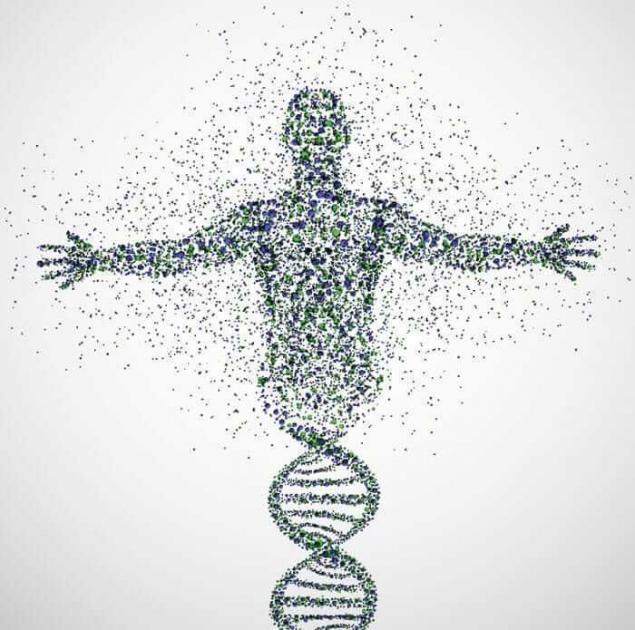
Genes determine many of our traits and propensities. Boys tend to deal with cars, not dolls. Genes, bliaut on our individual predispositions, including to disease, antisocial behavior, talent, physical or intellectual activities, etc.
It is important always to remember that the tendency of pushing the person, but does not define its behavior. The tendency for genes responsible for the behavior of people. Yes, and their inclinations to work: some to develop, make favourite, and which ones to leave out of their attention, to extinguish them, to forget...
Genes determine the time when any of our talent or inclination will appear or not.
Came in good time, when the genes are ready — made miracle. Missed at the time — flew by. Today, the receptivity to educational process is open — "white sheet" or "absorb only the good", and tomorrow, as the king had said of the film "Ordinary miracle": "I will Wake up grandma, and I'll kink".
Genes determine when we Wake up libido, and when it falls asleep.Genes affect happiness, and traits.
After analyzing data on more than 900 pairs of twins, psychologists at Edinburgh University has found evidence of genes that determine traits, propensity to happiness, ability to better tolerate stress.
Aggressiveness and friendliness, genius and dementia, autism or extroversion are transmitted to children from parents as the makings. All this changed education, but to varying degrees, as and inclinations can be of different strength. Teach the child or not, this is also due to his genetics. And then note: healthy children are quite teachable. Human genetics makes a person exceptionally trained creature!
Genes — the carriers of our capabilities, including opportunities to change and improve. Interestingly, men and women in this respect, different possibilities. Men more often than women, are born with certain abnormalities: among men, more of those who will be very high and very low, very smart and Vice versa, talented and stupid. It seems that the male nature is experimenting... In this case, if a man was born that way, he can change it during the life is very difficult. The man tied to its genotype, its phenotype (the external manifestation of the genotype) is changed slightly.
Was born a long, long remain. Shorty could use sport to rise for 1-2 cm, but no more.
In women the situation is different. Women are born on average, more of the same, among them biological, genetic abnormalities less. Often of average height, average intelligence, average decency, idiots and sludge among women lower than among men. But also prominent in the intellectual or moral respect — the same.
It seems that evolution, with the experiments on the women decides not to take the risk and invest in women most reliable. Individual (phenotypic) variability is higher for women: if a girl was born small relative to the other, she will be able to extend for 2-5 cm (more than man)... Women have more freedom from your genotype, have greater ability than men to change themselves.
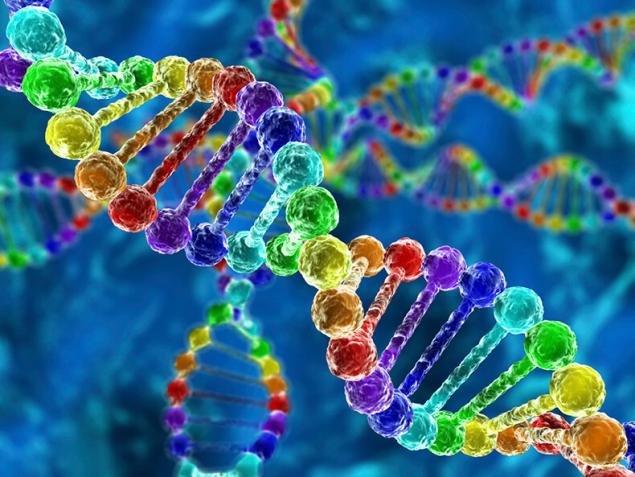
Genes give us our opportunities, and genes, our capabilities are limited.
A grain of wheat grows proud ear of wheat, and seedling Apple trees — a beautiful leafy Apple tree. Our essence, our inclinations and the opportunity to realize themselves give us our genes. On the other hand, a grain of wheat will grow only stalk of wheat from seedling Apple grows only Apple, but what no frog to swell, in the bull it will not be inflated. She even burst from the strain strength is not enough.
Man is also a part of nature, and all of the above is true for him. Genes predetermine the limits of our capabilities, including our ability to change ourselves, to strive for growth and development. If you are lucky with the genes, you were able to perceive the influence of your parents and teachers, rose developed a decent and talented man. Thank you parents! If you genes are less fortunate, and you (suddenly!) born down in a good environment you will become just bred down. In this sense, our genes are our destiny, and their genes, their ability to grow and change, we can't change.
How many in the us is genetically programmed — a very controversial issue (the interaction of heredity and environment studying psychogenetics).
Rather true that the more a person is removed from the animal world, the lower the innate and purchased more. While we must admit that most of us have an innate very much. On average, according to geneticists, genes determine human behavior by 40%.
In a supportive environment and a good educational process, the possible negative predisposition may not be realized, or to correct, to "cover up" the influence of neighboring genes awakened, and positive predisposition, sometimes hidden — to emerge. Sometimes the person (the child) just doesn't know its capabilities, and a definitive "give up", to say that "from this ugly duckling a Swan will not grow" — it is dangerous.
Another danger, another risk is to spend time and energy on the person from which Putnam did nothing. Saying that everyone can become a genius, and that's technically true. However, almost one for enough thirty years and have another three hundred years, and invested in such troublesome people — is unprofitable. Sports coaches claim that innate talent, not training methods, the most important factor in the formation of a future champion.
If she was born a redhead with green eyes and a "predisposition" to obesity, then you can certainly dye your hair and wear colored lenses: the girl will still be green-eyed with brown hair. And here come her "predisposition" in pyatydesiatyrichia size, wearable by all her relatives, is largely dependent on itself. And even more: it depends whether it will be for forty years, sitting in this pyatydesiatyrichia size, to criticize the state and nicklausse life (as do all her relatives) or will find themselves many other interesting activities.
Can a person change, when to overcome and when to improve their genetics? The answer to this question could not be General, because it is genetically defined individually. Most important thing is that no expert will give you a definite answer, the answer you find yourself just starting to work, starting to change himself.
Is it possible this child (or yourself) to change in the right direction, we can understand only by experience, starting with this child (or yourself) to do. Start! Genes set possibilities, it depends on us how we are implementing these opportunities. If you have good genetics, you can make it even better and to pass on to their children as the most precious gift.
Our DNA remembers what we had a childhood, there are observations that genetically transmitted habits, skills, aptitudes, and even manners. If you have developed good manners, nice manners, put a good voice, accustomed to the daily routine and responsibility, there is a good chance that sooner or later it will be included in the genotype of your last name.

Genes determine our abilities, our capabilities and inclinations, but not our destiny. Genes determine the starting point for the activity — someone has it better, someone more difficult. But what will be on the database of this site made take care not genes, and people: the man himself and those near him.
Genetics can be improved — if not always in their own individual destiny, then, certainly, in the fate of his family. Good luck with genetics!
Bad genetics and upbringing
Children from orphanages often have poor genetics — not only health, but also on the inclinations and character traits. If ordinary good parents without special training take care of the child, they can deal with the fact that the child is stealing, not studying, lying and so forth in full. Genetics has not been canceled.
In this regard you need to be very careful when people want to take care of a child from the orphanage. There were cases when the family took care of the girl at age 9 months, whose mother was a prostitute, and in spite of the values of this family, at the age of 14-16 years old girl in full "remembered" his mother.
Dr. Howell: How to prevent chronic disease and increase life expectancy
8 natural foods that destroy parasites in the body
On the other hand, we should not exaggerate these difficulties. The hidden problem scenarios difficult children is not the most common option, often a good or bad inclinations children seen since childhood. In addition, the experience of A. S. Makarenko more than convincingly says that if high-quality education of children with almost any genetics turn into decent people.published
Author: Nikolay Kozlov
Source: www.psychologos.ru/articles/view/geny
Genes determine our physical and mental features, the genes specify what we, as humans, can't fly and breathe under water, but can learn human speech and writing. Boys are easier oriented in the objective world, girls to the world of relationships. Someone born with perfect pitch, someone with an absolute memory, and someone with the average intelligence.
By the way, it depends on the age of parents average age of parents gives birth to brilliant children, the mother was 27 years old, father 38.

Genes determine many of our traits and propensities. Boys tend to deal with cars, not dolls. Genes, bliaut on our individual predispositions, including to disease, antisocial behavior, talent, physical or intellectual activities, etc.
It is important always to remember that the tendency of pushing the person, but does not define its behavior. The tendency for genes responsible for the behavior of people. Yes, and their inclinations to work: some to develop, make favourite, and which ones to leave out of their attention, to extinguish them, to forget...
Genes determine the time when any of our talent or inclination will appear or not.
Came in good time, when the genes are ready — made miracle. Missed at the time — flew by. Today, the receptivity to educational process is open — "white sheet" or "absorb only the good", and tomorrow, as the king had said of the film "Ordinary miracle": "I will Wake up grandma, and I'll kink".
Genes determine when we Wake up libido, and when it falls asleep.Genes affect happiness, and traits.
After analyzing data on more than 900 pairs of twins, psychologists at Edinburgh University has found evidence of genes that determine traits, propensity to happiness, ability to better tolerate stress.
Aggressiveness and friendliness, genius and dementia, autism or extroversion are transmitted to children from parents as the makings. All this changed education, but to varying degrees, as and inclinations can be of different strength. Teach the child or not, this is also due to his genetics. And then note: healthy children are quite teachable. Human genetics makes a person exceptionally trained creature!
Genes — the carriers of our capabilities, including opportunities to change and improve. Interestingly, men and women in this respect, different possibilities. Men more often than women, are born with certain abnormalities: among men, more of those who will be very high and very low, very smart and Vice versa, talented and stupid. It seems that the male nature is experimenting... In this case, if a man was born that way, he can change it during the life is very difficult. The man tied to its genotype, its phenotype (the external manifestation of the genotype) is changed slightly.
Was born a long, long remain. Shorty could use sport to rise for 1-2 cm, but no more.
In women the situation is different. Women are born on average, more of the same, among them biological, genetic abnormalities less. Often of average height, average intelligence, average decency, idiots and sludge among women lower than among men. But also prominent in the intellectual or moral respect — the same.
It seems that evolution, with the experiments on the women decides not to take the risk and invest in women most reliable. Individual (phenotypic) variability is higher for women: if a girl was born small relative to the other, she will be able to extend for 2-5 cm (more than man)... Women have more freedom from your genotype, have greater ability than men to change themselves.

Genes give us our opportunities, and genes, our capabilities are limited.
A grain of wheat grows proud ear of wheat, and seedling Apple trees — a beautiful leafy Apple tree. Our essence, our inclinations and the opportunity to realize themselves give us our genes. On the other hand, a grain of wheat will grow only stalk of wheat from seedling Apple grows only Apple, but what no frog to swell, in the bull it will not be inflated. She even burst from the strain strength is not enough.
Man is also a part of nature, and all of the above is true for him. Genes predetermine the limits of our capabilities, including our ability to change ourselves, to strive for growth and development. If you are lucky with the genes, you were able to perceive the influence of your parents and teachers, rose developed a decent and talented man. Thank you parents! If you genes are less fortunate, and you (suddenly!) born down in a good environment you will become just bred down. In this sense, our genes are our destiny, and their genes, their ability to grow and change, we can't change.
How many in the us is genetically programmed — a very controversial issue (the interaction of heredity and environment studying psychogenetics).
Rather true that the more a person is removed from the animal world, the lower the innate and purchased more. While we must admit that most of us have an innate very much. On average, according to geneticists, genes determine human behavior by 40%.
In a supportive environment and a good educational process, the possible negative predisposition may not be realized, or to correct, to "cover up" the influence of neighboring genes awakened, and positive predisposition, sometimes hidden — to emerge. Sometimes the person (the child) just doesn't know its capabilities, and a definitive "give up", to say that "from this ugly duckling a Swan will not grow" — it is dangerous.
Another danger, another risk is to spend time and energy on the person from which Putnam did nothing. Saying that everyone can become a genius, and that's technically true. However, almost one for enough thirty years and have another three hundred years, and invested in such troublesome people — is unprofitable. Sports coaches claim that innate talent, not training methods, the most important factor in the formation of a future champion.
If she was born a redhead with green eyes and a "predisposition" to obesity, then you can certainly dye your hair and wear colored lenses: the girl will still be green-eyed with brown hair. And here come her "predisposition" in pyatydesiatyrichia size, wearable by all her relatives, is largely dependent on itself. And even more: it depends whether it will be for forty years, sitting in this pyatydesiatyrichia size, to criticize the state and nicklausse life (as do all her relatives) or will find themselves many other interesting activities.
Can a person change, when to overcome and when to improve their genetics? The answer to this question could not be General, because it is genetically defined individually. Most important thing is that no expert will give you a definite answer, the answer you find yourself just starting to work, starting to change himself.
Is it possible this child (or yourself) to change in the right direction, we can understand only by experience, starting with this child (or yourself) to do. Start! Genes set possibilities, it depends on us how we are implementing these opportunities. If you have good genetics, you can make it even better and to pass on to their children as the most precious gift.
Our DNA remembers what we had a childhood, there are observations that genetically transmitted habits, skills, aptitudes, and even manners. If you have developed good manners, nice manners, put a good voice, accustomed to the daily routine and responsibility, there is a good chance that sooner or later it will be included in the genotype of your last name.

Genes determine our abilities, our capabilities and inclinations, but not our destiny. Genes determine the starting point for the activity — someone has it better, someone more difficult. But what will be on the database of this site made take care not genes, and people: the man himself and those near him.
Genetics can be improved — if not always in their own individual destiny, then, certainly, in the fate of his family. Good luck with genetics!
Bad genetics and upbringing
Children from orphanages often have poor genetics — not only health, but also on the inclinations and character traits. If ordinary good parents without special training take care of the child, they can deal with the fact that the child is stealing, not studying, lying and so forth in full. Genetics has not been canceled.
In this regard you need to be very careful when people want to take care of a child from the orphanage. There were cases when the family took care of the girl at age 9 months, whose mother was a prostitute, and in spite of the values of this family, at the age of 14-16 years old girl in full "remembered" his mother.
Dr. Howell: How to prevent chronic disease and increase life expectancy
8 natural foods that destroy parasites in the body
On the other hand, we should not exaggerate these difficulties. The hidden problem scenarios difficult children is not the most common option, often a good or bad inclinations children seen since childhood. In addition, the experience of A. S. Makarenko more than convincingly says that if high-quality education of children with almost any genetics turn into decent people.published
Author: Nikolay Kozlov
Source: www.psychologos.ru/articles/view/geny
Black radish: hypertension, arthritis, balding, and not only
Chemistry of love: what's really going on
